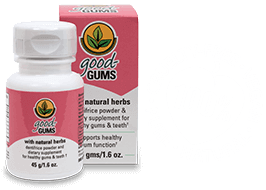Coffee – The Good, the Bad & the Ugly

Even though coffee is one of the world’s most popular drinks, it is still highly controversial when it comes to its benefits and drawbacks of how it affects the body, and is widely disputed among today’s health circles.
Various individuals and institutions have tried to ban coffee since its apparent discovery around the 9th century when it was claimed for influencing ‘rebellious characteristics’.
Legend has it that coffee was first discovered by an Ethiopian goat herder who noticed his goats were unusually energized after eating the leaves and berries from an unfamiliar tree. He decided to try some and began dancing around like his goats! When a passing monk witnessed this, he too wanted to try because he kept falling asleep during his evening prayers. When he ate the berries, he stayed awake. This pleased and fascinated the monk so much that he came up with the idea of brewing the berries to make a drink.
This was the birth of coffee!
It took a few more hundred years before the cultivation and trade of coffee took off, starting from the Arabian Peninsula, spreading to Egypt, Syria, Turkey, then to the rest of Europe, and finally the Americas. Towards the end of the 18th century, the coffee industry was booming and is today one of the most profitable commodities.
The Science behind Coffee
There is no denying that this beverage is enjoyed and revered by many, but what does it actually do to us?
Coffee contains the psychoactive substance caffeine, which stimulates the central nervous system. It first enters the bloodstream, then travels to the brain right after the first sip. Caffeine blocks adenosine, the neurotransmitter which makes us sleepy. This, in turn, increases the levels of neurotransmitters, dopamine and norepinephrine, contributing to the feelings of increased alertness, vigilance, cognitive function, memory learning, and coordination. The metabolism of caffeine can vary from person to person and can, therefore, stay in the body longer and have a stronger effect depending on age, constitution, or genetics.

Possible Health Benefits of coffee
An epidemiologist from the Harvard School of Public Health, on studying the effects of coffee states, “the overall balance of risks and benefits (of coffee consumption) are on the side of benefits.”
Being a hepatoprotective, the phytonutrients and the magnesium in coffee can actually benefit and protect the liver. This could be due to their effects on stabilizing blood sugars, reducing insulin, regulating bile and their general anti-inflammatory properties. This is also why drinking coffee has been associated with a reduced chance of developing Type 2 Diabetes.
The other important compounds of coffee are the antioxidants or phytonutrients, known as chlorogenic acids (hydrocinnamic acids and polyphenols). These are powerful disease-fighting compounds that are metabolized by the digestive system.
Increasing research also suggests that the caffeine in coffee helps to break down fats in liver cells and has a beneficial effect on restoring liver damage associated with overindulging in processed foods and alcohol. The risk of developing liver cancer and cirrhosis is, therefore, lower in coffee drinkers.
Other studies have found that coffee drinkers may have a reduced risk of developing dementia, Alzheimer’s, Parkinson’s disease, cardiovascular disease and specific types of cancer.
Other benefits include:
- Increased metabolism
- Aids fat burning
- Improved physical performance during exercise
- Increased stamina
- Reduced fatigue
- Improved memory
- Improved mood
- Increased longevity

Possible health risks of coffee
Coffee could be seen as a panacea for many illnesses – yet everything has a downside!
It is actually the caffeine in coffee that proves to be the main downside. As well as being highly addictive, it also over-stimulates the sympathetic nervous system and the adrenal glands, which means our “fight or flight” system becomes activated. Both adrenaline and cortisol are released into the bloodstream after coffee consumption, which over time can create a host of problems. Elevated cortisol levels can disrupt the deep delta stage of sleep where the body fully rests and repairs. This not only causes restlessness in the body, which may result in varying degrees of insomnia but it also increases anxiety. And those already suffering from anxiety are more prone to anxiety attacks.
Although coffee increases dopamine levels, over time it can deplete another of our body’s “feel good hormones” – serotonin – which creates a depression of the immune system and ultimately our mood. So those suffering from anxiety or depression may need to find other alternatives. Drinking coffee also contributes to adrenal fatigue, which causes your adrenals to overwork in order to produce more cortisol and burns out your glands. This then affects the body’s natural ability to bring itself back to balance.
There are high-risk and vulnerable individuals that should avoid caffeine. Caffeine has a stronger effect on children and teenagers, and it has been shown to cause high blood pressure, irregular heartbeat and changes in their cardiovascular function. Yet, there is no definitive research on coffee needing to be completely eradicated by those with cardiovascular disease, irregular heartbeat, pregnant or lactating women; it is generally encouraged that these individuals reduce their daily amount.

Unfortunately, chemicals are abundantly used on the coffee bean plant, and it is one of the most sprayed crops in the world. So despite some of its amazing antioxidant qualities, a lot of these are lost during the cultivation process. Even though organic coffee is slightly more nutritious, natural pesticides are still used. But even still, you are always better off using organic and fair trade coffee rather than a standard supermarket quality.
Finally, the more caffeine that is consumed, the more certain vitamins can become depleted e.g. calcium, potassium and vitamin B1. Moderate caffeine consumption can be anywhere between 200 mg to 400 mg a day, which is about two espressos for most people. The negative impacts of coffee can be mainly attributed to drinking in excess of this amount.
Oral Health: Tips to reduce the negative effects of coffee
Just as excessive quantities of coffee can have a detrimental effect on your body, it can also be detrimental to your teeth. As we always say – what is good for your body is good for your teeth!
Drinking excess coffee can stain the teeth, damage tooth enamel, lead to dry mouth and cause bad breath (halitosis), however, there are some simple things that can counter the negative impacts of drinking coffee:
- Get regular checkups and cleanings to reduce stains
- Rinse your mouth with water after drinking coffee to prevent staining.
Brush your teeth about 30 minutes after drinking to prevent the acid from wearing enamel down - Use a tongue scraper to remove toxins and reduce halitosis
- Drink moderate amounts of a high quality organic or fairtrade brand coffee
- Avoid sugar/sweeteners
- Consider switching things up a bit by drinking alternatives
- Use Good-Gums, an all-natural toothpaste alternative that builds strong tooth enamel and healthy gums, and neutralizes mouth acids that cause bad breath
Green tea is a great alternative to coffee. It’s extremely beneficial for our oral and overall health as well as containing a healthy dose of caffeine. Other alternatives include barley (chicory), dandelion coffee, cacao, chai, turmeric chai (golden milk) and many other delicious energizing beverages. You can even buy green raw coffee beans and roast them yourself at home – this is meant to be the most nutritious and freshest way to drink coffee!
There have been numerous studies that have actually shown that drinking strong, roasted black coffee in moderation can actually reduce cavities! This is because the antibacterial and anti-adhesive compounds in coffee inhibit certain microorganisms including Streptococcus mutans – which cause dental caries.
Finally, if drinking coffee is contributing to your stress and anxiety levels, you may want to consider reducing or eliminating it completely from your diet. Stress has been shown to have a negative impact on oral health and may be the underlying cause of your teeth and gum problems.
Remember, moderation and balance are key to maintaining a healthy body and a healthy mouth!

Subscribe To Our Newsletter
Be the first to receive all our news, offers and natural oral health tips and articles.


